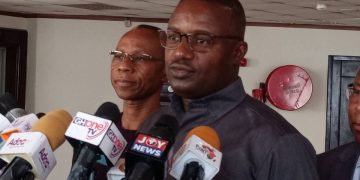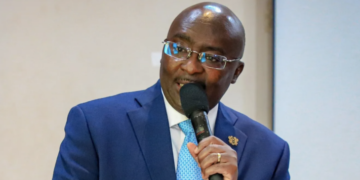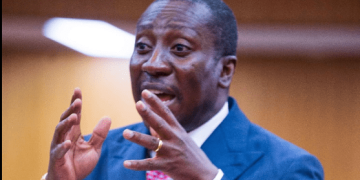When the political party primaries for the upcoming 2024 elections got underway, my reading of the political environment led me to two initial conclusions.
First, John Mahama and Dr Bawumia would emerge as the flagbearers of their respective parties.
Second, given the turnover every eight years so far in the 4th Republic plus the economic and governance challenges under this administration, the political winds were blowing favourably in the direction of the NDC.
In my response to Prof. Smart Sarpong’s baseline report published yesterday in the Daily Graphic, I concluded with this polemic – Are voters generally not happy with the choices before they come this December? Are voters struggling to choose between a) a candidate whose party’s performance has left them with economic scars and b) a party whose candidate reminds them of some of the challenges experienced in the past even if they pale in comparison to current ones? My questions were driven primarily by two observations – a) the size of the undecided vote (23%) in Prof.’s report and b) the insignificant margins (.14) between John Mahama and Dr Bawumia on the issue of trust and competence as per the Global Info Analytics poll (April 2024).
Voting intentions
I revisit voting intentions expressed so far by Ghanaians to wrestle with this polemic using data from three sources – a) Afrobarometer Round 9, 2022; b) Global Info Analytics (average of 9 polls between April 2022 and April 2024) and c) Prof. Smart Sarpong’s baseline report (April 2024).
Since the Global Info Analytics poll uses a “likely voter’s model” which means those who say “won’t vote or undecided” are excluded from their analysis, I do the same for the two other sources to appropriately compare voting intentions across all three sources.
Which presidential candidate do likely voters intend to vote for this election year? Between Afrobarometer Round 9 in 2022, the various polls conducted by Global Info Analytics and the most recent election year baseline study by Prof. Sarpong, here are the intentions of likely voters. All three sources use very sound methodological approaches in their work.
For the Afrobarometer survey, it is not designed as an election survey although it does ask questions about voting intentions.
Also, two years have passed since the voting intention question was asked. As a result, intentions could have changed over time, hence the difference in the results when compared to the two other sources. For the Global Info Analytics poll (April 2024) and Prof. Sarpong’s baseline study (April 2024), two key things account for the different results in my estimation– a) the sample sizes and b) the geographic coverage.
If the voting intentions model is expanded to include undecided voters, then as of Afrobarometer Round 9, 2022, John Mahama enjoyed a 50 per cent – 37 per cent advantage over Dr Bawumia. As per Prof. Sarpong’s baseline report, Dr Bawumia enjoys a 39 per cent – 36 per cent advantage over John Mahama.
Implications
In April, I pointed out the warning signals for the NPP as per the findings from the Global Info Analytics poll. Prof. Sarpong’s baseline report has warning signs for the NDC – a) victory may not necessarily be assured yet and b) Dr Bawumia appears stronger in a political terrain where all the signs suggest he should not be.
At the same time, the report also suggests that if likely voters (undecided voters removed from the analysis) were casting their vote primarily based on which political party is preferred, the NDC edges out the NPP by a 50 per cent -45 per cent margin.
If we look at the two most recent polls/surveys from April 2024, using the likely voter model, the story of the probable outcome of election 2024 is unclear.
At best, we have a convoluted answer. That to me says a lot about the peculiar nature of this election year and the reason why I have been asking myself since yesterday whether Ghanaians are struggling to make a choice.
And if they are struggling, what will be the deal breaker between now and December? A few more pre-election surveys and polls will help provide more insights.
A few more pre-election surveys and polls will help provide more insights. As the campaigns progress, it will be very important to see whether voter sentiments are changing and in which direction. Also, how many voters continue to remain “undecided” and for how long? Voters are unpredictable though.
In addition, the election is still six months away. In politics, that is a very long time.
The writer, Dr John Osae-Kwapong, is the Project Director of the Democracy Project.



















































































